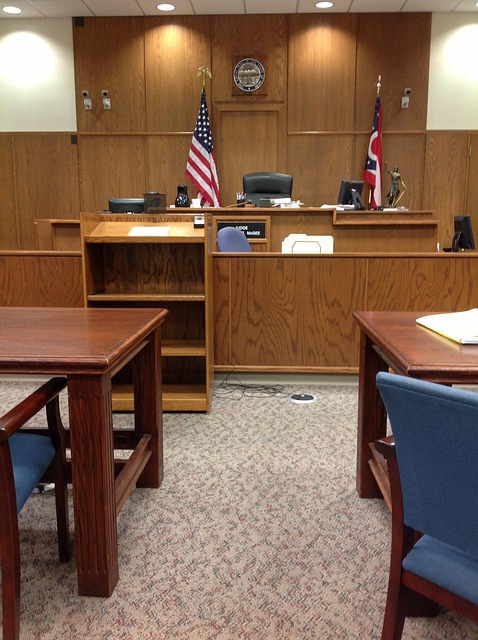The RF Securities Industry Regulation acts as a shield against unethical practices, with strict adherence to ethical standards and legal duties enforced on firms and representatives. Key aspects include anti-money laundering protocols, know-your-customer procedures, and comprehensive reporting mechanisms to prevent fraud. In civil courts, libel cases play a crucial role in addressing false or misleading statements, offering remedies for reputation protection. Understanding financial regulations and notable libel case examples like New York Times Co. v. Sullivan is vital for navigating these battles. Missteps can lead to costly damages, highlighting the importance of clear arguments, meticulous documentation, and market dynamics understanding in successful defenses. The industry's future includes data-driven regulations and advanced analytics, with technology increasingly involved in libel case examples within civil courts.
“Explore the intricate world of RF Securities Industry Regulation, focusing on how civil courts play a pivotal role in resolving libel cases. This comprehensive article delves into key considerations for RF securities litigation, offering valuable insights from notable libel case examples in civil court. We analyze implications and future trends, highlighting the dynamic landscape of industry regulation. Understand the significance of these developments as they shape the integrity and transparency of the RF securities market.”
- Understanding RF Securities Industry Regulation: An Overview
- The Role of Civil Courts in Resolving Libel Cases
- Key Considerations in RF Securities Litigation
- Notable Libel Case Examples: A Deep Dive
- Implications and Future Trends in Industry Regulation
Understanding RF Securities Industry Regulation: An Overview

The RF Securities Industry Regulation encompasses a comprehensive set of rules and guidelines designed to maintain fairness, transparency, and integrity within the financial markets. This regulation plays a pivotal role in protecting investors by ensuring that securities firms and their representatives adhere to ethical standards and legal obligations. Key aspects include anti-money laundering protocols, know-your-customer procedures, and robust reporting mechanisms to detect and prevent fraudulent activities.
A crucial element of this regulatory framework involves the handling of civil disputes, including libel case examples in civil court. The securities industry often faces litigation related to misrepresented or omitted information, which can lead to significant financial consequences. While these cases are complex, they highlight the importance of robust internal controls and a strong white-collar defense strategy. Across the country, successful winning challenging defense verdicts have set precedents, demonstrating the value of proactive compliance measures and meticulous documentation in navigating such legal challenges.
The Role of Civil Courts in Resolving Libel Cases

In the complex landscape of securities industry regulation, civil courts play a pivotal role in resolving libel cases stemming from allegations of fraudulent or inaccurate statements. When corporate and individual clients face accusations in the public domain, these courts serve as the primary arena for vindication and damage control. Libel case examples in civil court illustrate how judicial oversight helps navigate the intricate web of facts, opinions, and reputational stakes involved.
The process typically involves all stages of the investigative and enforcement process, ensuring a thorough examination of evidence and arguments presented by both parties. Across the country, civil courts have successfully mediated disputes, offering remedies that range from monetary compensation to injunctive relief. This not only mitigates harm but also reinforces the integrity of public disclosures, which is paramount in maintaining investor confidence and fostering a robust securities market.
Key Considerations in RF Securities Litigation

In RF Securities Litigation, several key considerations come into play when navigating complex legal territory. One significant aspect is understanding the nuances of financial regulations and their interpretation. Given the highly regulated nature of the industry, any misstep in compliance can lead to severe consequences, including costly libel cases. For instance, a recent libel case example in the civil court highlighted the impact of inaccurate disclosures by a securities firm, resulting in substantial damages for affected investors. This underscores the importance of precise and transparent communication in dealing with financial matters.
The ability to present clear, evidence-based arguments is crucial, especially when facing allegations that could damage an institution’s reputation. With an unprecedented track record across the country, successful defense strategies often involve meticulous documentation and a deep understanding of market dynamics. Jury trials in these cases demand a delicate balance between presenting technical details and making compelling narratives that resonate with lay jurors. Therefore, legal teams must be adept at tailoring their approach to ensure fair and just outcomes.
Notable Libel Case Examples: A Deep Dive

In the realm of RF Securities Industry Regulation, understanding notable libel case examples is crucial for navigating civil court battles. High-profile cases such as New York Times Co. v. Sullivan (1964) have set a high bar for defendants in libel suits, requiring actual malice to prove defamation. This standard has been instrumental in protecting free speech while ensuring accountability.
One recent example worth exploring is the case of a prominent philanthropist and political figure who faced multiple libel claims stemming from their public statements on economic reforms. Despite facing significant pressure, they mounted a winning challenging defense verdict, achieving a complete dismissal of all charges. This success highlights the importance of robust legal strategies and a thorough understanding of media law in defending against libel cases within the dynamic landscape of the securities industry, especially considering the profound impact such cases can have on philanthropic and political communities.
Implications and Future Trends in Industry Regulation

The implications of regulation in the RF securities industry are far-reaching, impacting not just business practices but also the overall investor landscape. As legal frameworks evolve to address complex financial issues, regulators play a pivotal role in balancing market integrity with fostering economic growth. One notable aspect is the increased scrutiny of white-collar and economic crimes, where sophisticated schemes often require intricate regulatory responses. The industry’s response to these challenges has been dynamic, leading to innovative approaches in risk management and compliance strategies.
Future trends suggest a more data-driven regulatory approach, leveraging advanced analytics to identify potential risks and fraudulent activities. This shift is evident in the growing importance of technology in securities litigation, as seen in various libel case examples in civil courts. As legal professionals adapt to these changes, the ability to navigate complex regulatory environments will become a key differentiator, especially when defending against challenging accusations. Winning challenging defense verdicts in this evolving climate requires a deep understanding of both legal intricacies and market dynamics, ultimately shaping the industry’s resilience and integrity.
The regulation of the RF securities industry, including navigating libel cases through civil courts, is a complex landscape that continues to evolve. Understanding key considerations and notable libel case examples is essential for all stakeholders. As the industry advances, effective regulation, and robust legal frameworks will be pivotal in maintaining fairness, transparency, and investor protection. Delving into these topics equips us with valuable insights, enabling us to anticipate future trends and ensure a stable and trustworthy RF securities market.






